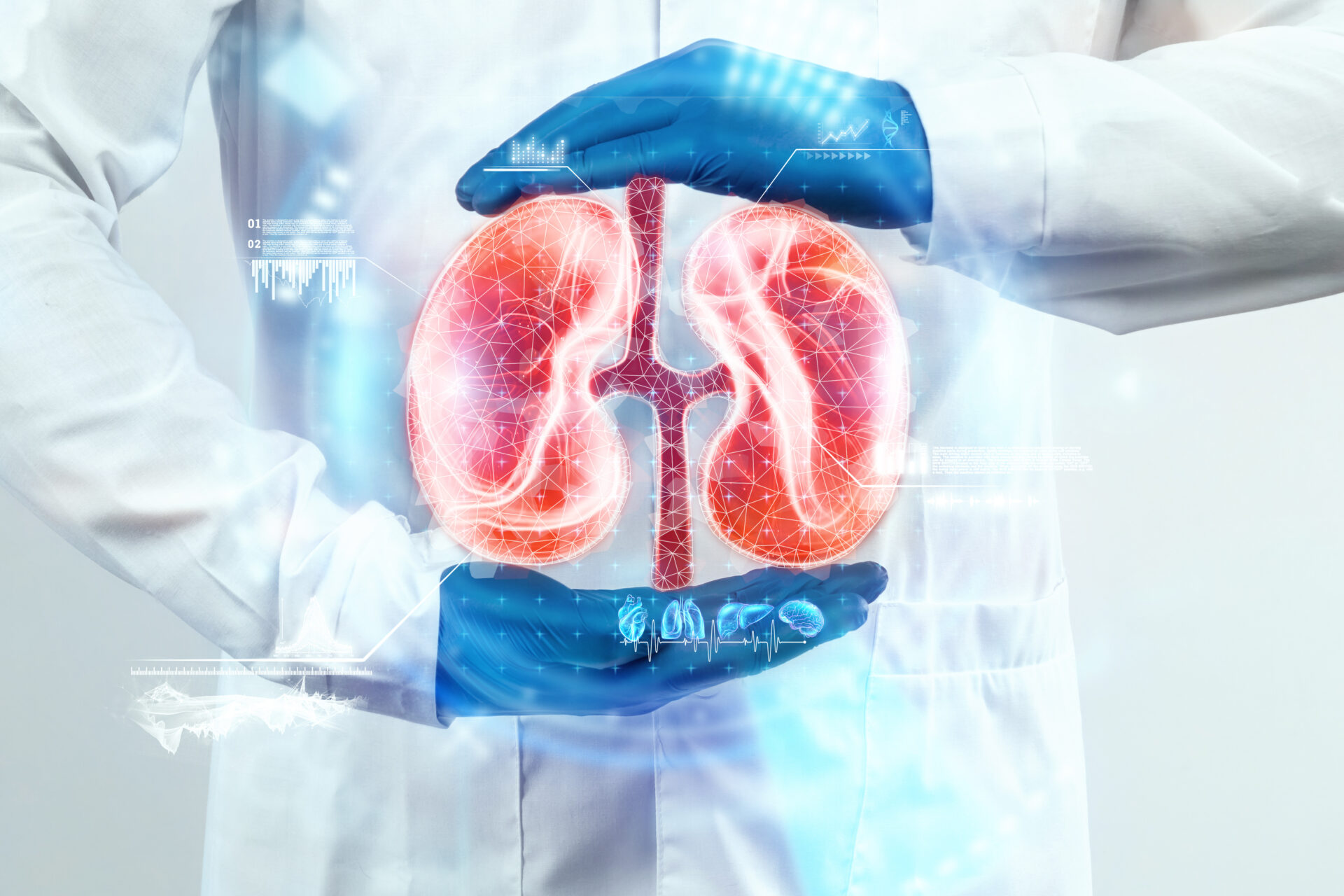Understanding Stage 1 Kidney Disease
At Innovative Renal Care, we recognize the importance of early detection and management of kidney disease to improve patient outcomes and quality of life.
If you or someone you love is experiencing symptoms of CKD, we are here to help. Contact us today for a consultation, or continue reading to learn more about the first two stages of this kidney condition.


What is Stage 1 Kidney Disease?
Stage 1 chronic kidney disease represents the earliest stage of kidney damage as categorized by the Kidney Disease Improving Global Outcomes (KDIGO) guidelines.
In Stage 1 CKD, there is evidence of kidney damage, but kidney function remains relatively preserved. Specifically, Stage 1 CKD is characterized by a normal glomerular filtration rate (GFR) greater than 90 milliliters per minute per 1.73 square meters, along with other indicators of kidney damage.
Despite kidney damage, individuals with Stage 1 CKD typically do not exhibit noticeable symptoms, and their kidneys may still effectively filter waste products and excess fluids from the blood.
In many cases, Stage 1 CKD is detected through routine laboratory tests, such as blood and urine tests, rather than presenting with overt symptoms.
Management of Stage 1 CKD focuses on identifying and addressing underlying causes of kidney damage and implementing lifestyle modifications to slow the progression of kidney disease and minimize complications. This may include maintaining a healthy diet, managing blood pressure and blood sugar levels, avoiding tobacco use, and staying physically active.
Regular monitoring of kidney function through routine check-ups and laboratory tests is essential for individuals with Stage 1 CKD to track disease progression and adjust treatment as needed.

Stage 1 CKD Symptoms
Many individuals with stage 1 chronic kidney disease do not experience any symptoms.
If symptoms are present, they are typically mild and can include:
- Fatigue
- Changes in urination frequency or pattern
- Mild swelling in the hands or feet
- Blood in the urine (hematuria)
- Elevated blood pressure

Is There a Special Diet for Stage 1 Kidney Disease?
While there may not be specific dietary restrictions for Stage 1 CKD, adopting a healthy lifestyle and nutritional habits can help preserve kidney function and overall health.
Recommendations may include:
- Maintaining a balanced diet rich in fruits, vegetables, whole grains, lean proteins, and healthy fats.
- Limiting sodium intake to help manage blood pressure and fluid retention.
- Monitoring protein intake to avoid excessive strain on the kidneys.
- Staying hydrated by drinking an adequate amount of water daily.
Individualized dietary guidance from a registered dietitian or healthcare provider can help optimize nutritional intake and support kidney health throughout all stages of chronic kidney disease.

Treatment Options for CKD Stage 1
Treating and managing stage 1 CKD focuses on managing underlying conditions, such as hypertension and diabetes, optimizing lifestyle factors, and preventing further kidney damage.
Treatment options may include:
- Blood pressure management
- Blood sugar control for individuals with diabetes
- Medication adjustments to protect kidney function
- Lifestyle modifications, including dietary changes and regular exercise
- Monitoring kidney function through routine check-ups and laboratory tests
Individuals with Stage 1 CKD should work closely with their healthcare team to develop a personalized treatment plan tailored to their needs and health goals.




